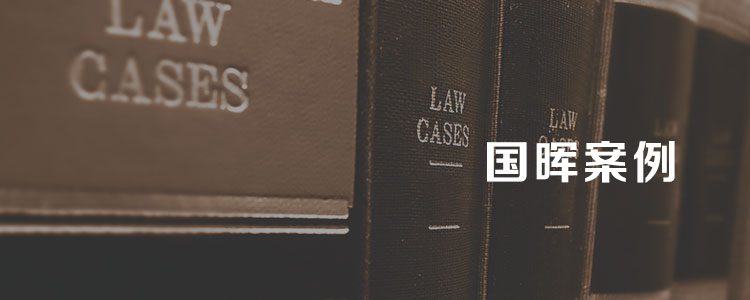


 3674
3674BOOK 3
On The Principles Of The Three Governments
CHAPTER 1 The Difference Between The Nature Of The Government And Its Principle
After having examined the laws relative to the nature of each government, one must look at those that are relative to its principle.
There is this difference between the nature of the government and its principle: its nature is that which makes it what it is, and its principle, that which makes it act. The one is its particular structure, and the other is the human passions that set it in motion.
Now, the laws should be no less relative to the principle of each government than to its nature. Therefore, this principle must be sought. I shall do so in this book.
CHAPTER 2 On The Principle Of The Various Governments
I have said that the nature of republican government is that the people as a body, or certain families, have the sovereign power; the nature of monarchical government is that the prince has the sovereign power, but that he exercises it according to established laws; the nature of despotic government is that one alone governs according to his wills and caprices. Nothing more is needed for me to find their three principles: they derive naturally from this. I shall begin with republican government and I shall first speak of the democratic government.
CHAPTER 3 On The Principle Of Democracy
There need not be much integrity for a monarchical or despotic government to maintain or sustain itself. The force of the laws in the one and the prince’s ever-raised arm in the other can rule or contain the whole. But in a popular state their must be an additional spring which is VIRTUE.
What I say is confirmed by the entire body of history and is quite in conformity with the nature of things. For it is clear that less virtue is needed in a monarchy, where the one who sees to the execution of the laws judges himself above the laws, than in popular government, where the one who sees to the execution of the laws feels that he is subject to them himself and that he will bear their weight.
It is also clear that the monarch who ceases to see to the execution of the laws, through bad counsel or negligence, may easily repair the damage; he has only to change his counsel or correct his own negligence. But in a popular government when the laws have ceased to be executed, as this can come only from the corruption of the republic, the state is already lost.
It was a fine spectacle in the last century to see the important attempts of the English to establish democracy among themselves. As those who took part in public affairs had no virtue at all, as their ambition was excited by the success of the most audacious one and the spirit of one faction was repressed only by the spirit of another, the government was constantly changing; the people, stunned, sought democracy and found it nowhere. Finally, after much motion and many shocks and jolts, they had to come to rest on the very government that had been proscribed.
When Sulla wanted to return liberty to Rome, it could no longer be accepted; Rome had but a weak remnant of virtue, and as it had ever less, instead of reawakening after Caeser, Tiberius, Caius, Claudius, Nero, and Domitian, it became ever more enslaved; all the blows were struck against tyrants, none against tyranny.
The political men of
When that virtue ceases, ambition enters those hearts that can admit it, and avarice enters them all. Desires change their objects: that which one used to love, one loves no longer. One was free under the laws, one wants to be free against them. Each citizen is like a slave who has escaped from his master’s house. What was a maxim is now called severity; what was a rule is now called constraint; what was vigilance is now called fear. There, frugality, not the desire to possess, is avarice. Formerly the goods of individuals made up the public treasury; the public treasury has now become the patrimony of individuals. The republic is a cast-off husk, and its strength is no more than the power of a few citizens and the license of all.
There were the same forces in
How could
CHAPTER 4 On The Principle Of Aristocracy
Just as there must be virtue in popular government, there must also be virtue in the aristocratic one. It is true that it is not as absolutely required.
The people, who are with respect to the nobles what the subjects are with respect to the monarch, are contained by the nobles’ laws. Therefore, they need virtue less than the people of a democracy. But how will the nobles be contained? Those who should see to the execution of the laws against their fellows will instantly feel that they act against themselves. Virtue must, therefore, be in this body by the nature of the constitution.
Aristocratic government has a certain strength in itself that democracy does not have. In aristocratic government, the nobles form a body, which, by its prerogative and for its particular interest, represses the people; having laws is enough to insure that they will be executed.
But it is as easy for this body to repress the others as it is difficult for it to repress itself. Such is the nature of this constitution that it seems to put under the power of the laws the same people it exempts from them.
Now such a body may repress itself in only two ways: either by a great virtue that makes the nobles in some way equal to their people, which may form a great republic; or by a lesser virtue, a certain moderation that renders the nobles at least equal among themselves, which brings about their preservation.
Therefore, moderation is the soul of these governments. I mean the moderation founded on virtue, not the one that comes form faintheartedness and from laziness of soul.
CHAPTER 5 That Virtue Is Not The Principle Of Monarchical Government
In monarchies, politics accomplishes great things with as little virtue as it can, just as in the finest machines art employs as few motions, forces, and wheels as possible.
The state continues to exist independently of love of the homeland, desire for true glory, self-renunciation, sacrifice of one’s dearest interests, and all those heroic virtues we find in the ancients and know only by hearsay.
The laws replace all these virtues, for which there is no need; the state excuses you from them: here an action done noiselessly is in a way inconsequential.
Though all crimes are by their nature public, truly public crimes are nevertheless distinguished from private crimes, so called because they offend an individual more than the whole society.
Now, in republics private crimes are more public, that is, they run counter to the constitution of the state more than against individuals; and, in monarchies, public crimes are more private, that is, they run counter to individual fortunes more than against the constitution of the state itself.
I beg that no one be offended by what I have said; I have followed all the histories. I know very well that virtuous princes are not rare, but I say that in a monarchy it is very difficult for the people to be virtuous.
Read what the historians of all times have said about the courts of monarchs; recall the conversations of men from every country about the wretched character of countries: these are not matters of speculation but of sad experience.
Ambition in idleness, meanness in arrogance, the desire to enrich oneself without work, aversion to truth, flattery, treachery, perfidy, the abandonment of all one’s engagements, the scorn of the duties of citizens, the fear of the prince’s virtue, the expectation of his weaknesses, and more than all that, the perpetual ridicule cast upon virtue, these form, I believe, the character of the greater number of courtiers, as observed in all places and at all times. Now, it is very awkward for most of the principal men of a state to be dishonest people and for the inferiors to be good people, for the former to be deceivers and the latter to consent to be no more than dupes.
If there is some unfortunate honest man among the people, hints Cardinal Richelieu in his Political Testament, a monarch should be careful not to employ him. So true is it that virtue is not the spring of this government! Certainly, it is not excluded, but it is not its spring.
CHAPTER 6 How Virtue Is Replaced In Monarchical Government
I hasten and I lengthen my steps, so that none will believe I satirize monarchical government. No; if one spring is missing, monarchy has another, HONOR, that is, the prejudice of each person and each condition, takes the place of the political virtue of which I have spoken and represents it everywhere. It can inspire the finest actions; joined with the force of the laws, it can lead to the goal of government as does virtue itself.
Thus, in well-regulated monarchies everyone will be almost a good citizen, and one will rarely find someone who is a good man; for, in order to be a good man, one must have the intention of being one and love the state less for oneself than for itself.
CHAPTER 7 On The Principle Of Monarchy
Monarchical government assumes, as we have said, preeminences, ranks, and even a hereditary nobility. The nature of honor is to demand preferences and distinctions; therefore, honor has, in and of itself, a place in this government.
Ambition is pernicious in a republic. It has good effects in monarchy; it gives life to that government; and it has this advantage, that it is not dangerous because it can constantly be repressed.
You could say that it is like the system of the universe, where there is a force constantly repelling all bodies from the center and a force of gravitation attracting them to it. Honor makes all the parts of the body politic move; its very action binds them, and each person works for the common good, believing he works for his individual interests.
Speaking philosophically, it is true that the honor that guides all the parts of the state is a false honor, but this false honor is as useful to the public as the true one would be to the individuals who could have it.
And is it not impressive that one can oblige men to do all the difficult actions and which require force, with no reward other than the renown of these actions?
CHAPTER 8 That Honor Is Not The Principle Of Despotic States
Honor is not the principle of despotic states: as the men in them are all equal, one cannot prefer oneself to others; as men in them are all slaves, one can prefer oneself to nothing.
Moreover, as honor has its laws and rules and is incapable of yielding, as it depends on its own caprice and not on that of another, honor can be found only in states whose constitution is fixed and whose laws are certain.
How could honor be endured by the despot? It glories in scorning life, and the despot is strong only because he can take life away. How could honor endure the despot? It has consistent rules and sustains its caprices; the despot has no rule, and his caprices destroy all the others.
Honor, unknown in despotic states where even the word to express it is often lacking, reigns in monarchies; there it gives life to the whole body politic, to the laws, and even to the virtues.
CHAPTER 9 On The Principle Of Despotic Government
Just as there must be virtue in a republic and honor in a monarchy, there must be FEAR in a despotic government. Virtue is not at all necessary to it and honor would be dangerous.
The prince’s immense power passes intact to those to whom he entrusts it. People capable of much self-esteem would be in a position to cause revolutions. Therefore, fear must beat down everyone’s courage and extinguish even the slightest feeling of ambition.
A moderate government can, as much as it wants and without peril, relax its springs. It maintains itself by its laws and even by its force. But when in despotic government the prince ceases for a moment to raise his arm, when he cannot instantly destroy those in the highest places, all is lost, for when the spring of the government, which is fear, no longer exists, the people no longer have a protector.
Apparently it was in this sense that the cadis claimed that the Grand Signior was not obliged to keep his word or his oath if by doing so he limited his authority.
The people must be judged by the laws, and the important men by the prince’s fancy; the head of the lowest subject must be safe, and the pasha’s head always exposed. One cannot speak of these monstrous governments without shuddering. The Sophi of Persia, deposed in our time by Myrrweis, saw his government perish before it was conquered because he had not spilled enough blood.
History tells us that Domitian’s horrible cruelties so frightened the governors that the people revived somewhat during his reign. In the same way, a flood, destroying everything on one bank, leaves stretches of land on the other where meadows can be seen in the distance.
CHAPTER 10 The Difference In Obedience Between Moderate Government And Despotic Governments
In despotic states the nature of the government requires extreme obedience, and the prince’s will, once known, should produce its effect as infallibly as does one ball thrown against another.
No tempering, modification, accommodation, terms, alternatives, negotiations, remonstrances, nothing as good or better can be proposed. Man is a creature that obeys a creature that wants.
He can no more express his fears about a future event than he can blame his lack of success on the caprice of fortune. There, men’s portion, like beasts’, is instinct, obedience, and chastisement.
It is useless to counter with natural feelings, respect for a father, tenderness for one’s children and women, laws of honor, or the state of one’s health; one has received the order and that is enough.
In
There is, however, one thing with which one can sometimes counter the prince’s will: that is religion. One will forsake one’s father, even kill him, if the prince orders it, but one will not drink wine if the prince wants it and orders it. The laws of religion are part of a higher precept, because they apply to the prince as well as to the subjects. But it is not the same for natural right; the prince is not assumed to be a man.
In monarchical and moderate states, power is limited by that which is its spring; I mean honor, which reigns like a monarch over the prince and the people. One will not cite the laws of religion to a courtier: he would feel it was ridiculous; instead one will incessantly cite the laws of honor. This results in necessary modifications of obedience; honor is naturally subject to eccentricities, and obedience will follow them all.
Though the way of obeying is different in these two governments, the power is nevertheless the same. In whatever direction the monarch turns, he prevails by tipping the balance and he is obeyed. The whole difference is that, in the monarchy, the prince is enlightened and the ministers are infinitely more skillful and experienced in public affairs than they are in the despotic state.
CHAPTER 11 Reflections On All This
Such are the principles of the three governments: this does not mean that in a certain republic one is virtuous, but that one ought to be; nor does this prove that in a certain monarchy, there is honor or that in a particular despotic state, there is fear, but that unless it is there, the government is imperfect.

请使用微信"扫一扫"做您的掌上律师

国晖小程序